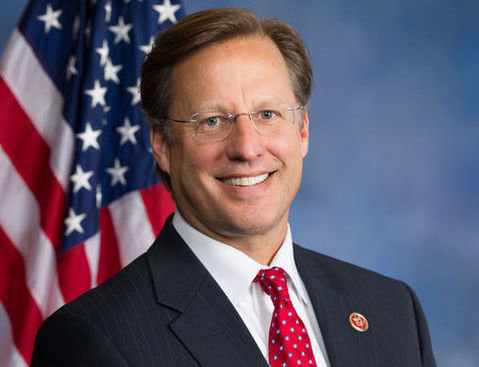We’ve done a fair number of posts on the distinction between moderate and radical open borders. This post explores an important angle that we haven’t yet explored, and should be of particular interest to people who come from the outside view as truth-seekers.
Here are some facts:
- There is a small collection of explicit advocates of open borders, including Open Borders bloggers, as well as some of the people in our pro-open borders people list, plus many of the people who’ve liked us on Facebook. While their (our) views aren’t identical, there is general agreement that there should be a strong presumption in favor of free movement around the world.
- The pro-open borders view is a minority view, even within the “enlightened” public (i.e., even among people who have a reasonably accurate general picture of economics, politics, and some basic facts about migration).
- That said, the enlightened public does exhibit attitudes more favorable to freer migration than the public at large. This may be due to a mix of a more cosmopolitan (as opposed to citizenist or territorialist) outlook, and a more positive estimate of the impact of migration on natives. For more, see our pages on economist consensus, legal and political scholarly consensus, and smart and more informed opinion.
- It is quite rare to see reasoned critiques from supporters of moderate open borders of the more radical open borders position. Therefore, it is difficult both to know the extent to which moderate open borders supporters have rationally considered and then rejected radical open borders, and to know their reasons for doing so.
Why does this matter? In general, in the absence of further information, it makes sense to defer to the majority view within the enlightened public. So if you had never given thought to the issue of migration, it might be most reasonable to conclude that moderate steps in the direction of open borders are optimal. But how do you decide whether radical steps are better or worse?
Here, the dearth of explicit critiques of radical approaches from moderates creates a problem. If there was good evidence that moderates had carefully considered and rejected radical approaches, then, even without examining the details, we could have a reasonable prior in favor of the moderate view. If, on the other hand, there is little evidence of moderates carefully considering and rejecting radical approaches, our confidence in favoring moderate approaches instead of radical ones would be lower, and an inside-view examination of the issues may be necessary.
From the weak inside view, the lack of critiques is even more puzzling, because many of the arguments advanced by moderates in favor of open borders easily extend to radical open borders, and moderates’ typical formulations of the arguments rarely provide criteria for just what level of openness would void their arguments. As co-blogger John Lee wrote:
Already, I can hear the thousands of moderate reformers protest: that’s wholly unfeasible! That’s simply too crazy! But why is that? You can’t cite studies showing “Immigrants add $X to our economy” or “Immigrants pay $X million more in taxes than they get in benefits” or “Immigrants are less likely to commit crimes than people born here” without addressing the inescapable conclusion: if immigration is so good, what’s wrong with having more of it?
Now, to be sure, I’ve slightly oversimplified the social science here for the sake of argument. But none of the caveats to the conclusions I’ve cited above can at all come close to explaining the immense reluctance moderate reformers seem to have about reaching the inevitable conclusion of the research here. Using the very premises I outlined above that we agree on, it seems that open borders is the only defensible, reality-based policy.
You might protest that most of the evidence pointing to neutral or positive effects from immigration is based on existing levels of immigration. Open borders is sufficiently radical that it might just be “out of sample” for any of the empirical studies we have about migration’s effects so far. I would say that although not strictly empirical, we do have some pretty good evidence from the pre-closed borders era of the 20th century that open borders pose no existential threat to humanity or the nation; for an example, see my take on what open borders history suggests will happen to Latin-American migrants in the modern US. Either way, if we’re being truly honest about the social science, then the right skeptical position is: “We have every reason to believe open borders is the right thing to do. We must move towards it, monitoring the evidence as it comes in for proof to the contrary.”
To be clear, moderates haven’t been completely silent in their critiques of open borders. Consider, for instance, economist Tyler Cowen. He has written a fair number of short posts critical of extreme open borders and its advocacy. But he is an exception among moderates, and, as I noted earlier, open borders advocates’ own description of potential weaknesses in their case seems to be more thorough than Cowen’s criticisms. Other open borders moderates, such as Scott Sumner and Matt Yglesias, have argued against radical open borders mainly based on principled arguments in favor of moderation, but have generally appeared favorably inclined to the idea of open borders as an end goal that is desirable in at least some sense (Sumner here and Yglesias here). There are other occasional criticisms of open borders from moderate standpoints, that we have sometimes responded to in blog posts (such as Gene Callahan’s Immigration, Yes- and No post that Nathan responded to here), but criticism of open borders is still a lot rarer than ignoring it.
An interesting observation: how explicit engagement with open borders tends to move people in a more pro-open borders direction
If you took the view that the case for open borders is correct but largely ignored by people because they don’t give it sufficient consideration, you would expect that the more people tried to engage critically with the case for open borders, the further they would move in the direction of supporting open borders. Anecdotal evidence seems to bear out the latter (namely, that people move in a pro-open borders direction when attempting to critique open borders), and therefore provides some support for the former (namely that the case for open borders is correct but somewhat ignored). I noticed some evidence of this when discussing John Cochrane’s seeming shift towards an open embrace of open borders in my review of the inaugural issue of Peregrine. Separately, co-blogger Nathan noted in a recent post:
[Reading Callahan’s argument against open borders] confirms my casual impression from years of debating immigration, namely, that in arguing against you, restrictionists tend to position themselves a lot further in the right (i.e., pro-immigration) direction than it seems likely they would have gone without your provocation. If we could establish consensus about “the moral case for allowing as much immigration as we can bear,” that would be major progress. It’s not a very well-defined criterion, and restrictionists would doubtless seek to define the “we can bear” clause in very limiting ways. Open borders advocates would explain why it’s unreasonable to call a large population of resident non-voters, or a significant drop in the wages of unskilled natives, “unbearable.”
Summary of reasons
So what are the main reasons why moderates rarely engage with radical open borders, to either praise it or critique it? In an Open Borders Action Group post on Facebook, I considered a few possible reasons, and others added to my list. I include the full list of reasons below, then discuss them in more detail. I choose a somewhat different ordering from that used in the OBAG post, in order to be more logically consistent.
Reasons #1-#3 in the list represent some form of ignorance or irrationality on the part of moderates that leads them to fail to consider open borders. Reasons #4-#6 indicate laziness or sloppiness on the part of moderates in terms of their decision to not engage. Of the reasons proposed, the most substantive reasons, and the ones that should cause us to give moderates’s views most weight, are reasons #7 and #8.
- Ignorance (was #1 in OBAG list): They haven’t thought about it, don’t understand how far the world is from open borders, and/or haven’t encountered people who explicitly advocate for open borders.
- Reflexive moderation (was #7 in OBAG list): They package deal the word extremism with the general idea of “negative” or “wrong”. So, if you propose open borders their first reaction is that, “we can’t be so extreme.” (Suggestion from Bryan Hayek, who points to “Extremism and the Art of Smearing” by Ayn Rand).
- Failure of language (Sapir-Whorf-like hypothesis): They commonly associate “open borders” with even more extreme versions thereof (no borders, abolition of the nation-state) or with particular empirical consequences (border lawlessness). Moderates who might support specific moves that radically liberalize migration (perhaps not complete open borders, but sufficiently broad keyhole solutions that come close enough for all practical purposes) don’t have a vocabulary with which to think about and express such ideas.
- Silence motivated by indifference (was #4 in OBAG list): They disagree with the case for open borders but don’t care about it because open borders advocates are politically inconsequential. (Language altered somewhat from a suggestion by David E. Shellenberger).
- Nothing to say (was #5 in OBAG list): They disagree with the case for open borders, but don’t have any compelling arguments, so stay silent. (Suggestion from Carl Shulman).
- Morally embarrassing arguments (was #6 in original list): They disagree with the case for open borders, but their objections sound terrible (at least in some social circles) when stated baldly, like “I’d rather one poor American get $1 than 10 far poorer foreigners get $1 each.” (Suggestion from Carl Shulman).
- Strategic silence despite agreement, motivated by infeasibility and potential for backfiring on moderate reform (was #2 in original list): They agree to quite an extent with the case for open borders, but consider it politically infeasible at present, therefore they keep mum about it to avoid sabotaging the chances for moderate reform.
- Strategic silence despite disagreement, motivated by avoiding giving ammunition to restrictionists (was #3 in original list): They disagree with the case for open borders, but believe that if they openly critique it, the criticisms would be used by their restrictionist opponents against the case for moderate immigration reform.
The reasons offered here are not mutually exclusive, but they do have different implications for how much weight a truth-seeker coming from the outside view should attach to the case for open borders. Continue reading The dearth of moderates’ critique of open borders


